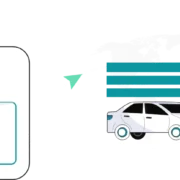In the ever-evolving landscape of healthcare, the role of a phlebotomy technician is indispensable. These skilled professionals play a critical role in the healthcare system by drawing blood samples, a procedure that is vital for diagnosis, treatment, and monitoring of various medical conditions. To become a proficient phlebotomy technician, one needs to enroll in a comprehensive phlebotomy technician program. In this article, we will explore the significance of such programs, their curriculum, and the career prospects they offer.
Understanding Phlebotomy Technician Programs
A phlebotomy technician program is a specialized training course designed to equip individuals with the knowledge and skills required to excel in the field of phlebotomy. These programs are typically offered by educational institutions, community colleges, and vocational schools. The duration of these programs can vary, with most lasting between 4 to 12 weeks, depending on the institution and the depth of training provided.
The Curriculum
A well-structured phlebotomy technician program covers a wide range of topics to ensure that students are prepared for the demands of their profession. Here are some of the key aspects typically covered in such programs:
- Anatomy and Physiology: A solid understanding of human anatomy and the circulatory system is essential for a phlebotomy technician. Students learn about the various veins, arteries, and capillaries in the body, as well as their functions and locations.
- Infection Control: Phlebotomists must adhere to strict infection control procedures to prevent the spread of diseases. This part of the curriculum teaches students the importance of hygiene, sterilization, and the use of personal protective equipment (PPE).
- Venipuncture Techniques: Venipuncture, the process of drawing blood from a vein, is the core skill of a phlebotomy technician. Students are trained in various venipuncture techniques, including the choice of equipment, site selection, and proper insertion and withdrawal of the needle.
- Specimen Handling: Once blood is collected, it must be properly labeled, stored, and transported to the laboratory for analysis. Students learn how to handle specimens correctly to ensure accurate test results.
- Patient Interaction: Phlebotomy technicians often interact with anxious or apprehensive patients. Communication and interpersonal skills are emphasized in the program to help students provide compassionate care and minimize patient discomfort.
- Legal and Ethical Considerations: The program covers the legal and ethical aspects of phlebotomy, including patient confidentiality, consent, and compliance with healthcare regulations.
- CPR Certification: Many programs include cardiopulmonary resuscitation (CPR) certification as part of their curriculum to prepare students for emergency situations in a healthcare setting.
Career Prospects
Completing a phlebotomy technician program opens doors to a rewarding and in-demand career in healthcare. Here are some compelling reasons why individuals choose this path:
- High Demand: The demand for phlebotomy technicians remains consistently high in healthcare facilities such as hospitals, clinics, laboratories, and blood donation centers. As the healthcare industry continues to grow, so does the need for skilled phlebotomists.
- Job Security: With a shortage of qualified phlebotomy professionals, those who complete a phlebotomy technician program enjoy job security and stability.
- Quick Entry: Phlebotomy is one of the fastest paths to enter the healthcare field. Unlike other healthcare professions that require years of education and training, phlebotomy programs can be completed in a matter of weeks, allowing individuals to start their careers sooner.
- Competitive Salary: Phlebotomy technicians earn competitive salaries, and their income can increase with experience and additional certifications.
- Career Advancement: Some phlebotomy technicians choose to further their careers by pursuing additional certifications or advanced degrees in related fields such as medical laboratory technology or nursing.
- Fulfilling Work: Phlebotomists make a meaningful contribution to patient care by ensuring that blood samples are collected accurately and safely, contributing to the diagnosis and treatment of various medical conditions.
Conclusion
A phlebotomy technician program is the gateway to a promising career in healthcare. These programs equip individuals with the knowledge, skills, and certification needed to become competent phlebotomists. With a curriculum that covers anatomy, infection control, venipuncture techniques, patient interaction, and legal considerations, students emerge well-prepared for the demands of their profession. The high demand for phlebotomy technicians, job security, competitive salaries, and opportunities for career advancement make this field an attractive choice for those looking to enter the healthcare industry.
























Comments